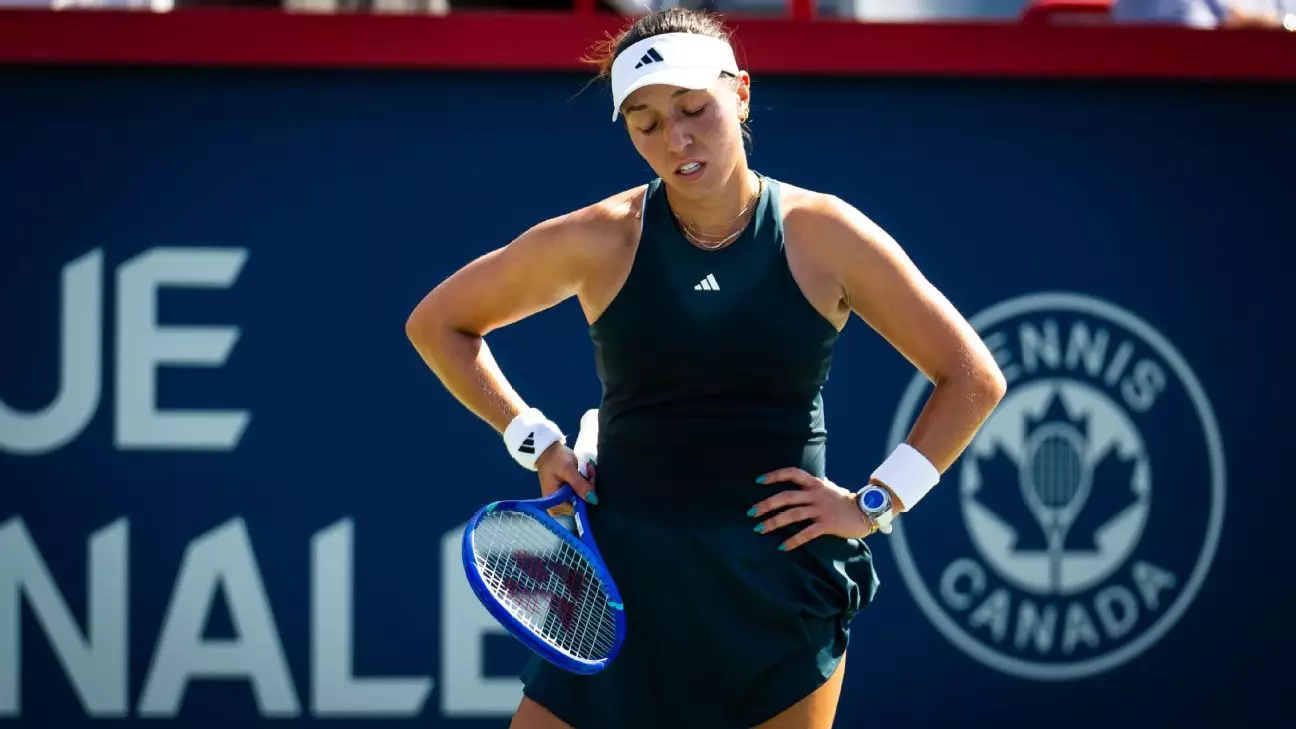The early rounds of the Montreal National Bank Open illuminated the unpredictable nature of professional tennis, reminding us that perseverance often outshines rankings and expectations. At the heart of this upheaval was Anastasija Sevastova, a seasoned 35-year-old Latvian player whose current ranking of 386 belies her formidable talent and resilience. Her victory over two-time defending champion Jessica Pegula was nothing short of a testament to perseverance and strategic brilliance. Sevastova’s journey is a narrative of overcoming setbacks—injury, time away from the court, and diminished ranking—and demonstrating that experience and grit can carve paths through the most daunting opponents. Her ability to break Pegula six times on ten chances exposes the fragility of top-tier confidence and underscores the importance of mental strength in high-stakes competition.
What makes her win even more remarkable is the context. Sevastova’s recent history includes a significant knee injury and a torn ACL sustained during her return from maternity leave. Her comeback has been marred by these setbacks, yet each match fought back from injury highlights an indomitable spirit. This victory is not merely a statistical upset but an inspiring chapter of resilience, illustrating that age and injury don’t necessarily define limits—determination does. It challenges the narrative that tennis greatness is solely age-dependent, instead affirming that true competitive spirit remains unbowed by time.
The Fluidity of Performance: Pegula’s Struggles and the Ebb and Flow of Confidence
Jessica Pegula’s early exit from Montreal is a reflection of the mental and physical toll that inconsistency can exact on even the most accomplished players. As a former champion, her loss to Sevastova underscores a painful truth in tennis—a single match can unravel a narrative of dominance built over previous tournaments. Pegula’s admission about her current form—”not playing great tennis” and feeling “up and down, kind of sloppy”—is an honest, rather unflattering glance at her recent struggles. This self-awareness, while commendable, also exposes the fragility of confidence in elite sports.
The mental battles that players endure are often underreported. For Pegula, the pressure to uphold her previous successes, coupled with a perceived dip in performance, becomes a cycle of doubt and frustration. Her early exit illuminates that consistency in tennis is elusive and that even top-ranked players must navigate a minefield of self-doubt and fluctuating form. Yet, her acknowledgment of these struggles suggests a player aware of her vulnerabilities, offering fans a relatable glimpse into the mental chess match that accompanies physical prowess on court.
Emerging Stars and the Power Dynamics of Round Progression
While the upset of Pegula garnered attention, the tournament also showcased the rise of some formidable talents and the resilience of seasoned players. Iga Swiatek’s commanding win over Eva Lys reaffirms her status as a dominant force, with her tactical acumen and mental toughness evident in her straight-set victory. Her upcoming match against Clara Tauson will test her ability to sustain high-level performance, an attribute that sets her apart from fluctuating contenders.
Meanwhile, Naomi Osaka’s steady progress into the fourth round exemplifies her journey of rediscovery post-peak rankings. The former world No. 1’s performance—hitting five aces and converting crucial break points—demonstrates her capacity to blend power and tactical patience. Her comments about facing an aggressive returner like Ostapenko reflect her understanding of her own game, emphasizing the importance of mental resilience and strategic adaptation.
The performance of Amanda Anisimova, winning convincingly against Raducanu, signals her potential to capitalize on opportunities and climb the rankings with each match. Her focus on bouncing back after setbacks highlights her mental fortitude—a vital component for any aspiring champion. As the tournament unfolds, these storylines serve as reminders that in tennis, perseverance coupled with skill often prevails over fleeting form and raw ranking alone.
The Human Element: The Never-Ending Battle with Self and Circumstance
Montreal’s tennis scene this week has echoed a broader truth: that success is as much about inner resilience as it is about physical talent. Sevastova’s comeback from injury, Pegula’s struggles to find rhythm, and Osaka’s tactical maturity all point to a shared narrative—tennis is a test of character as much as skill. The mental battles are often more intense than the physical ones, and the players’ ability to adapt, persist, and fight through adversity often determines their fate.
This tournament becomes a microcosm of the human condition—showing that setbacks, injuries, and moments of doubt are integral to growth. The players who rise above these challenges reveal that resilience isn’t just a trait but an ongoing process—a continual reaffirmation of one’s passion, grit, and determination. The Montreal courts are not just stages for athletic contest; they are arenas where personal stories of perseverance unfold, inspiring fans and fellow competitors alike.


Leave a Reply